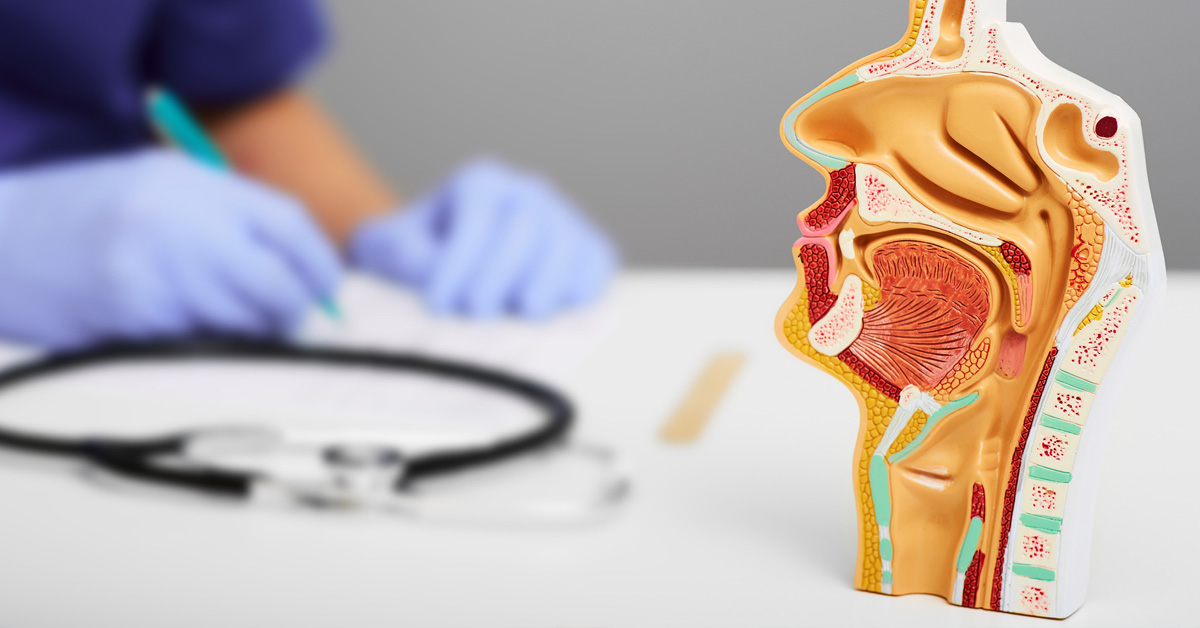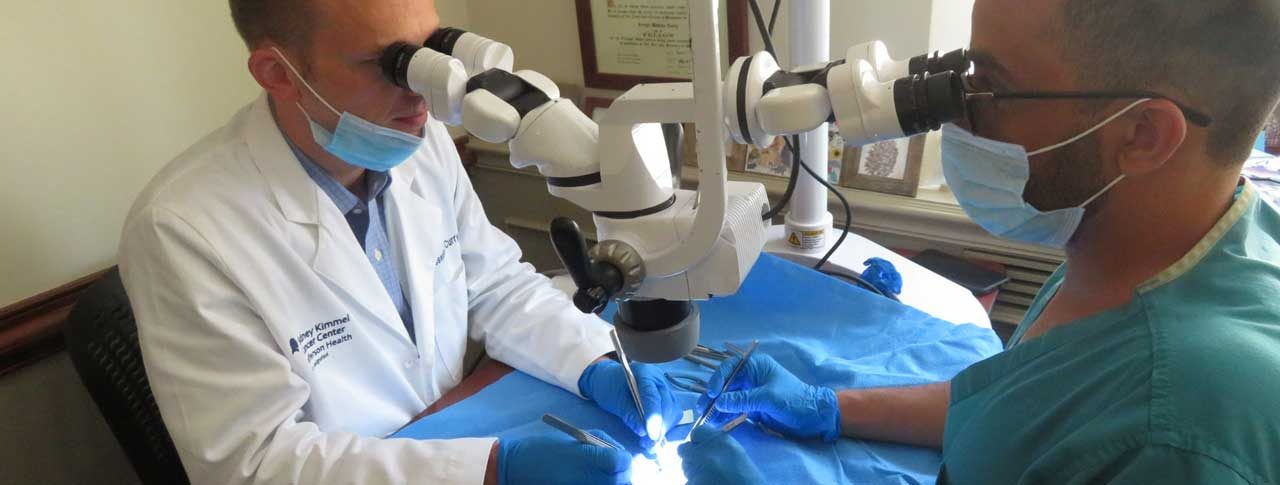Discovering the Area of Otolaryngology: What to Anticipate When You Speak With an ENT
Otolaryngology, typically referred to as ENT, includes the diagnosis and therapy of nose, ear, and throat disorders. For those experiencing related concerns, getting in touch with an ENT specialist can provide quality and relief. Understanding what to anticipate throughout such examinations is necessary for reliable interaction and treatment. This review will lay out essential elements of the ENT experience, including common reasons for brows through and the processes associated with diagnosis and therapy.

Understanding Otolaryngology: A Review
Otolaryngology, commonly described as ENT (Nose, ear, and throat) medication, is a specific branch of medicine that concentrates on the medical diagnosis and treatment of conditions influencing these important areas of the human body. This area incorporates a vast array of problems, including those relevant to hearing, balance, respiratory system function, and speech. Otolaryngologists are trained to manage both clinical and surgical treatments, using innovative strategies and technologies. Their know-how prolongs beyond standard disorders, attending to problems such as allergic reactions, sinus infections, and hearing loss. Additionally, they play an essential duty in the administration of head and neck cancers, supplying thorough treatment tailored to private person requirements. On the whole, otolaryngology remains crucial for maintaining health and high quality of life in affected people.
Typical Reasons to See an ENT Expert
Lots of individuals seek the proficiency of an ENT professional for a selection of factors, showing the diverse nature of conditions that affect the nose, ear, and throat. Usual concerns include chronic sinusitis, which commonly results in relentless nasal congestion and facial pain. Allergies and their associated symptoms, such as itching and sneezing, likewise trigger brows through to these specialists (Sinus). Hearing loss, whether steady or abrupt, is one more significant reason for assessment. Additionally, individuals may seek assessment for throat disorders, consisting of persistent hoarseness or swallowing problems. Sleep apnea, defined by interrupted breathing throughout sleep, is regularly resolved by ENT professionals. Each of these conditions highlights the importance of specialized treatment in handling complex ENT-related health and wellness issues
Getting ready for Your ENT Appointment
When preparing for an ENT visit, it is important to gather pertinent info and take into consideration any type of particular worries. Patients should put together a thorough case history, including previous ear, nose, or throat issues, surgical procedures, and current medicines. Recording signs-- such as period, frequency, and seriousness-- can give useful insights for the ENT professional. In addition, people must prepare a listing of inquiries they wish to ask, guaranteeing that all problems are resolved during the go to. Bringing along any relevant clinical records or test outcomes can additionally help the ENT in recognizing the client's problem. Ultimately, individuals need to verify their consultation details, including time, day, and location, to reduce any final complication. Appropriate preparation can enhance the performance of the examination and result in much better outcomes.
What to Expect Throughout the Appointment
As the examination starts, the client can expect to engage in a detailed discussion with the ENT specialist concerning their signs and case history. The professional will ask about the period, regularity, and severity of signs such as hearing loss, nasal congestion, or aching throat. In addition, the client's previous clinical conditions, drugs, and any appropriate family members history will certainly be assessed, helping the specialist in creating a full understanding of the client's health. The ENT may additionally ask concerning way of living factors, such as exposure to toxic irritants or irritants. This open dialogue develops a structure for the assessment, ensuring that the individual's issues are resolved and establishing the phase for any type of needed evaluations or referrals for treatment.
Analysis Tests and Treatments in Otolaryngology
A series of analysis examinations and procedures are crucial in otolaryngology to precisely assess and diagnose conditions influencing the ear, throat, and nose. Typical tests include audiometry, which measures hearing function, and tympanometry, assessing center ear stress. Nasal endoscopy allows visualization of the nasal flows and sinuses, while laryngoscopy examines the throat and vocal cables. Imaging techniques, such as CT scans and MRIs, offer thorough views of head and neck frameworks. Allergy screening may likewise be conducted to determine triggers for sinus or breathing concerns. These diagnostic devices enable ENT experts to develop a detailed understanding of clients' problems, ensuring tailored and effective administration strategies. Correct medical diagnosis is essential for successful treatment results in otolaryngology.
Therapy Options Offered by ENT Specialists
ENT specialists offer a range of treatment options customized to resolve details conditions affecting the nose, throat, and ear. These therapies vary from traditional techniques, such as medication and way of living adjustments, to even more invasive procedures. Allergic reactions might be managed with antihistamines or immunotherapy, while chronic sinusitis may call for dr ian storper otolaryngologist nasal corticosteroids or sinus surgery. For hearing loss, ENT professionals frequently recommend hearing aids or surgical interventions like cochlear implants. In situations of throat problems, alternatives can include speech therapy or operations to get rid of blockages. In addition, they may supply advice for handling rest apnea, consisting of using CPAP tools or surgical treatments. On the whole, the objective is to improve patients' top quality of life via customized care and effective therapy approaches.
When to Seek Follow-Up Care With an ENT
Acknowledging when to look for follow-up care with an ENT professional is important for managing recurring signs and symptoms or problems connected to nose, ear, and throat conditions. People ought to think about arranging a follow-up visit if signs and symptoms persist regardless of first therapy, such as chronic ear discomfort, nasal blockage, or throat discomfort. Modifications in hearing, equilibrium concerns, or uncommon nasal discharge might additionally click here to read necessitate additional assessment. Furthermore, if a patient experiences side impacts from prescribed drugs or has gone through a surgical treatment, follow-up treatment is crucial to monitor healing and address any type of worries. Timely appointments can ensure effective administration of conditions, stop potential problems, and offer satisfaction pertaining to one's wellness. Looking for follow-up care advertises positive wellness management in otolaryngology.
Frequently Asked Concerns

What Qualifications Should I Seek in an ENT Professional?
When seeking an ENT expert, one should look for board qualification, relevant experience, and strong person evaluations. Additionally, effective interaction skills and a thoughtful approach can considerably enhance the general treatment experience.
Just how Do I Select the Right ENT for My Needs?
Choosing the ideal ENT specialist includes assessing their certifications, experience, and patient testimonials (Otolaryngology). It is vital to ponder their communication design and method to therapy, guaranteeing they straighten with the individual's particular wellness requirements and choices
Are There Any Kind Of Threats Related To ENT Procedures?
The risks connected with ENT treatments might include infection, bleeding, anesthetic complications, and possible damages to surrounding structures. Patients must go over these dangers with their doctor to understand private problems and assurance informed choices.
How Can I Handle Anxiety Prior To My ENT Consultation?
To handle stress and anxiety before a visit, people can practice deep breathing workouts, imagine favorable outcomes, prepare questions beforehand, and look for support from good friends or family members, promoting a sense of reassurance and calmness.
What Should I Do if I Experience Negative Effects From Treatment?
If negative effects from treatment happen, the individual ought to promptly report them to their medical care company. Adjustments to therapy or additional interventions might be needed to guarantee safety and security and efficiency in handling their problem - Otolaryngologist. As the consultation begins, the person can expect to involve in a thorough discussion with the ENT specialist regarding their signs and symptoms and medical background. These analysis tools make it possible for ENT specialists to establish an extensive understanding of individuals' conditions, guaranteeing tailored and reliable monitoring strategies. ENT experts supply a variety of treatment options tailored to attend my latest blog post to particular problems impacting the throat, ear, and nose. When seeking an ENT specialist, one need to look for board certification, relevant experience, and solid person reviews. Picking the ideal ENT expert involves assessing their credentials, experience, and client testimonials